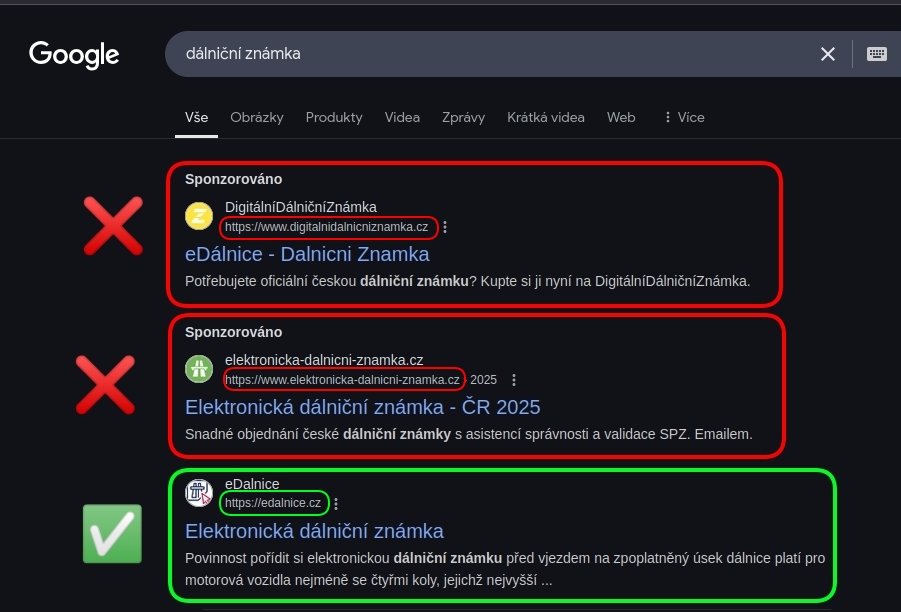Google search scams
Cybercriminals create fake sponsored links that look real but lead to scam websites. For example, searching for 'Google Authenticator' and clicking the first ad might take you to a fake login page—where entering your details hands them to scammers.

(TL;DR) Summary
When searching on Google or any other search engine, always be cautious with sponsored links. These links are paid promotions and may sometimes lead to malicious or untrustworthy websites. It’s important to verify the source and URL before clicking, especially if it requires you to log into some service or the website looks suspicious. Stick to well-known, reputable sites for safer browsing below the sponsored links.
❗ Just in 2024, Google blocked 415 million scam ads.
Our app Redamp.io includes a Safe Surfing feature that effectively handles protection against the latest threats such as phishing or malware.
How is it Dangerous
- Fake websites: Ads may lead to sites that mimic real brands, stealing your login or bank or credit card details.
- Phishing scams: Some ads direct you to pages pretending to be banks or official services, tricking you into sharing personal information.
- Counterfeit goods: Scammers use ads to sell fake or non-existent products at unrealistic prices.
Unlike regular search results, anyone can pay for these ads, making it easier for fraudsters to appear legitimate. Always double-check before clicking.
Example
In the example, you’ll see sponsored links from resellers offering Czech highway vignettes . If you click on these, you could end up paying much more than the official price—and there’s no guarantee you’ll even receive a valid vignette.

In the past we informed you about a sponsored link pretending to be "Google Authenticator," which claims to help you enable two-factor authentication (2FA) for your Google account. While the link appears to direct you to an official Google website for downloading the app, it is actually fake and could be unsafe.
How to Protect Yourself
Follow these simple steps to stay safe:
- Use Safe Surfing - feature that effectively handles protection against the latest threats such as phishing or malware.
- Visit trusted sites directly – Instead of clicking sponsored links, manually type the official website URL into your browser.
- Always check the URL – Hover over the link to preview the destination. Avoid suspicious or misspelled web addresses.
- Trust your instincts – If an offer seems too good to be true or the website feels untrustworthy, avoid it.
- You can also use an ad blocker – Tools like uBlock Origin can help filter out fraudulent ads.
What to Do If You’ve Been Scammed
Even with precautions, scams can still happen. If you suspect you’ve fallen victim to a fraudulent sponsored link, act quickly to minimize the damage:
- Stop All Transactions: If you entered payment details, contact your bank or credit card company immediately to report the fraud and request a transaction freeze or chargeback.
- Change Your Passwords: If you entered login credentials, change the passwords for the affected accounts right away. Use strong , unique passwords and enable two-factor authentication for added security.
- Scan for Malware: Run a full scan on your device using trusted antivirus software to check for malware or spyware that may have been installed.
- Monitor Your Accounts: Keep a close eye on your bank statements, credit reports, and online accounts for any suspicious activity. Early detection can help you address issues before they escalate.
- Report the Scam: Help prevent others from falling victim by reporting the fraudulent ad to Google using their Ad Feedback Form. You can also report scams to local consumer protection agencies.
Do not rely on search engine results when looking for a toll sticker by searching for terms like "highway toll sticker." The first result is not necessarily the official website. Sources: